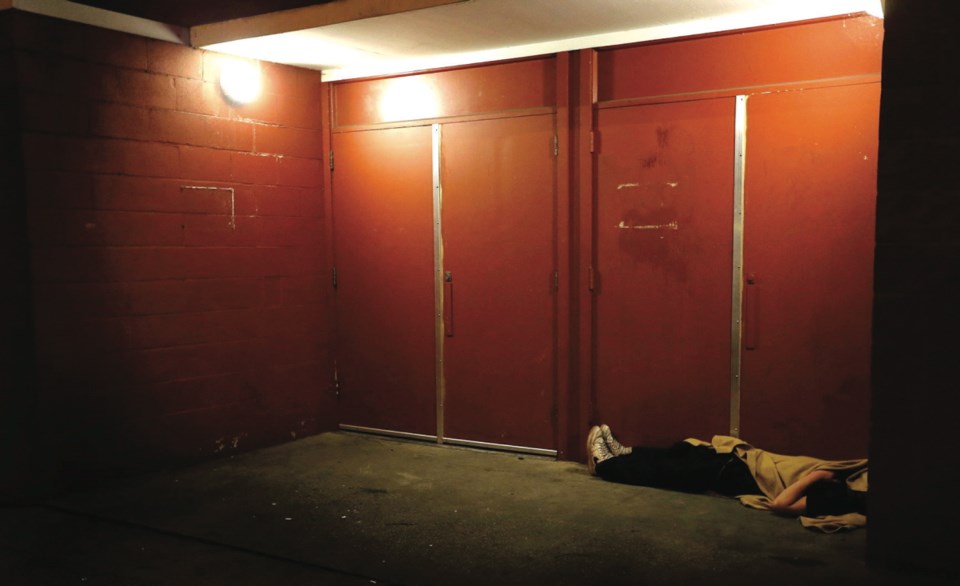Just what impact the disbanding of Victoria’s tent city will have on camping in city parks is difficult to say, Mayor Lisa Helps says.
Much depends on what happens to the homeless people who have never used tent city, she said.
“There are still people camping in parks who have never made their way to tent city, and there are people who are living in shelters who have never made their way to tent city. So I think it’s going to be interesting to see how people beyond tent city get housed,” Helps said.
“I think it’s way too early to say what the impact will be.”
Over the past year, the province has secured more than 300 units of transitional and permanent housing for people who are homeless. This includes the purchase of three buildings and nearly $26 million in funding for spaces and services.
Some of those spaces are already available, including 40 shelter beds at the My Place shelter on Yates Street, 50 spaces at Choices in View Royal, and 38 at the former Mount Edwards Care facility. Another 140 units of supportive housing will become available at the former Central Care Home facility on Johnson Street, along with 51 at the former Super 8 hotel on Douglas Street.
The beds that are already available are full and have wait-lists, and some, such as Choices in View Royal, are only temporary.
“I think there are 104 people on the wait-list for Choices — some of whom may be in shelters and some of whom may be camping in parks. But that’s a lot of people who are on a wait-list for spaces that don’t exist,” Helps said. “I think the wait-list for My Place has about 100 people on it as well.”
Helps noted that the Greater Victoria Coalition to End Homelessness count in February found more than 1,300 homeless people in the region, including more than 200 younger than 18.
“The province has purchased new buildings. There are 300 new housing units that will come on line, but there are still 1,000 people or so who are homeless in our region,” she said. “So this helps, but there’s still more work to do.”
Citing safety and health concerns, increased crime and disruption to the neighbourhood, B.C. Supreme Court Chief Justice Christopher Hinkson on Tuesday granted the province an injunction and ordered that the dismantling of tent city begin immediately. All structures are to be cleared and residents moved by no later than Aug. 8, when a former care home on Johnson Street, recently purchased by the province for supportive housing, is ready.
The ruling should mean that none of the 80 or so people living in the encampment on the courthouse property should be displaced back into city parks or downtown alleys and storefront doorways.
But without a shelter bed or housing for anyone who needs it, camping in parks is likely to continue.
In 2008, the B.C. Supreme Court ruled that in the absence of adequate shelter beds, it is unconstitutional to deny someone the right to erect shelter in a city park.
The city responded by amending its bylaws to allow people to camp in parks between dusk and dawn and began a protocol of conducting daily wakeup patrols with bylaw officers and city police.
But the numbers of people sleeping in parks grew, and the city faced ever increasing costs. (Last month, the city estimated its costs of dealing with homelessness over the past year at $1.6 million, climbing at the rate of $92,700 a month. Of that, $567,000 was directly attributable to tent city, it said.)
Tents began appearing on the courthouse lawn last year. Because the area isn’t a city park — it’s owned by the province — city bylaws don’t apply and the tents remained during the day. As their number grew, so did the concerns of neighbours.
Despite the province’s efforts, Helps and Coun. Geoff Young say it’s likely more short-term shelter beds, as well as more permanent housing units, will be required before the city can begin to enforce any no-camping bylaw in parks.
“To some degree, where we go from here is going to depend on how successful the people who are now living in the tent city are at adapting to the requirements of their new housing,” Young said.
“I suspect we will find some residents will eventually leave the city or go elsewhere simply because they were attracted only because of the tent city itself.”
Young noted that two of the proposed supportive housing facilities — the Super 8 hotel and Mount Edwards Court — will have to undergo rezonings.
“That’s going to depend to some degree on how successfully they are managed and how well they control the impacts on the neighbourhood,” he said.



